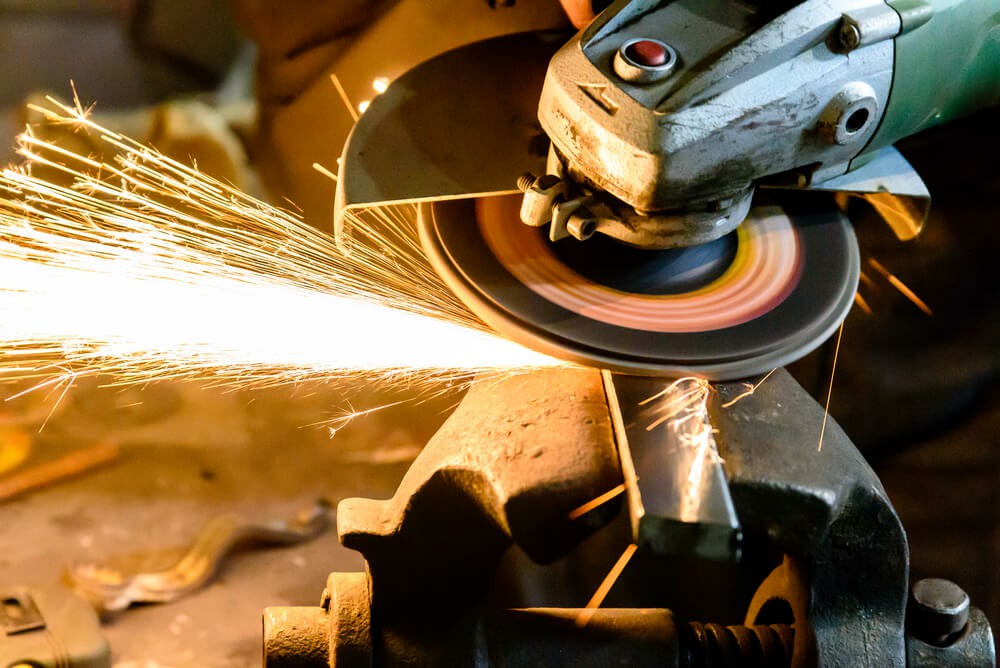Mastering the Essentials: Your Comprehensive Guide to Abrasive Wheels in Ireland
Abrasive wheels are indispensable tools used across various industries in Ireland, such as construction, automotive, and manufacturing. Understanding the different types of abrasive wheels and their specific applications is crucial for workers who handle these tools daily. This guide will cover the types of abrasive wheels, their applications, associated risks, and the importance of training to ensure safe practices in Dublin, Cork, Galway, Limerick, Waterford, and beyond.
Types of Abrasive Wheels
1. Grinding Wheels
- Description: Grinding wheels are designed to sharpen and shape materials through friction. They are made from a mixture of abrasive particles and binders.
- Applications: Used in metalworking, woodworking, and construction for tasks such as grinding down welds, sharpening tools, and smoothing surfaces.
- Risks: Possible risks include wheel breakage, injury from flying debris, and exposure to dust hazards.
2. Cutting Wheels
- Description: Cutting wheels are thin discs primarily used for slicing through materials, such as steel, aluminum, and concrete.
- Applications: Commonly utilized in metal fabrication, construction sites, and automotive repair to cut metals, pipes, and other hard materials.
- Risks: Risks include wheel instability leading to accidents, excessive sparks, and burns from heat generation during cutting.
3. Polishing Wheels
- Description: Polishing wheels are crafted from softer materials, often with a fabric or foam composition, to refine surfaces for a shine.
- Applications: Typically found in automotive detailing, jewelry making, and woodworking to enhance the finish of various products.
- Risks: Overheating of materials and exposure to finishing compounds, which can pose health hazards if not used in well-ventilated areas.
Abrasive Wheels Applications in Various Industries
Abrasive wheels are utilized in various industries with specific applications such as:
- Construction: Cutting and grinding concrete and metal structures.
- Automotive: Sharpening tools, cutting exhaust systems, and polishing car surfaces.
- Manufacturing: Shaping and finishing components for machinery and tools.
Understanding the Risks
Inherent Risks When Using Abrasive Wheels
Each type of abrasive wheel presents unique risks:
- Wheel Breakage: A major hazard, resulting in flying fragments that can cause serious injuries. Proper mounting and inspection are critical.
- Overheating: Continuous use without adequate cooling can damage materials and pose burn risks.
- Dust Generation: Exposure to dust from grinding and cutting can lead to respiratory issues if adequate ventilation is not provided.
Importance of Training and Certification
Proper training is essential for anyone using abrasive wheels. In Ireland, compliance with safety regulations mandates that workers undergo certified training courses. Here’s how training can mitigate risks:
- Understanding Safe Handling Practices: Workers who receive proper training learn about how to handle tools safely, including checking for defects before use.
- Risk Awareness: Training equips workers to understand and recognize risks, empowering them to prevent accidents.
- Compliance with Local Regulations: Certified training ensures that companies adhere to safety standards set in Dublin, Cork, Galway, and Limerick.
Abrasive Wheels Training Options in Ireland
Individuals looking to enhance their expertise can opt for:
Conclusion
In conclusion, knowledge of the various types of abrasive wheels and their applications in industries across Ireland is crucial for workplace safety. By receiving proper training and certification, workers can harness these tools effectively while minimizing risks. Embrace safety, stay informed, and consider enrolling in a certified abrasive wheels training course today.
For more information, contact us at [email protected].



 349,500 Offered Certificates
349,500 Offered Certificates
 24/7 Online Training
24/7 Online Training
 Money Back Guarantee
Money Back Guarantee
 Fully Accredited Courses
Fully Accredited Courses
